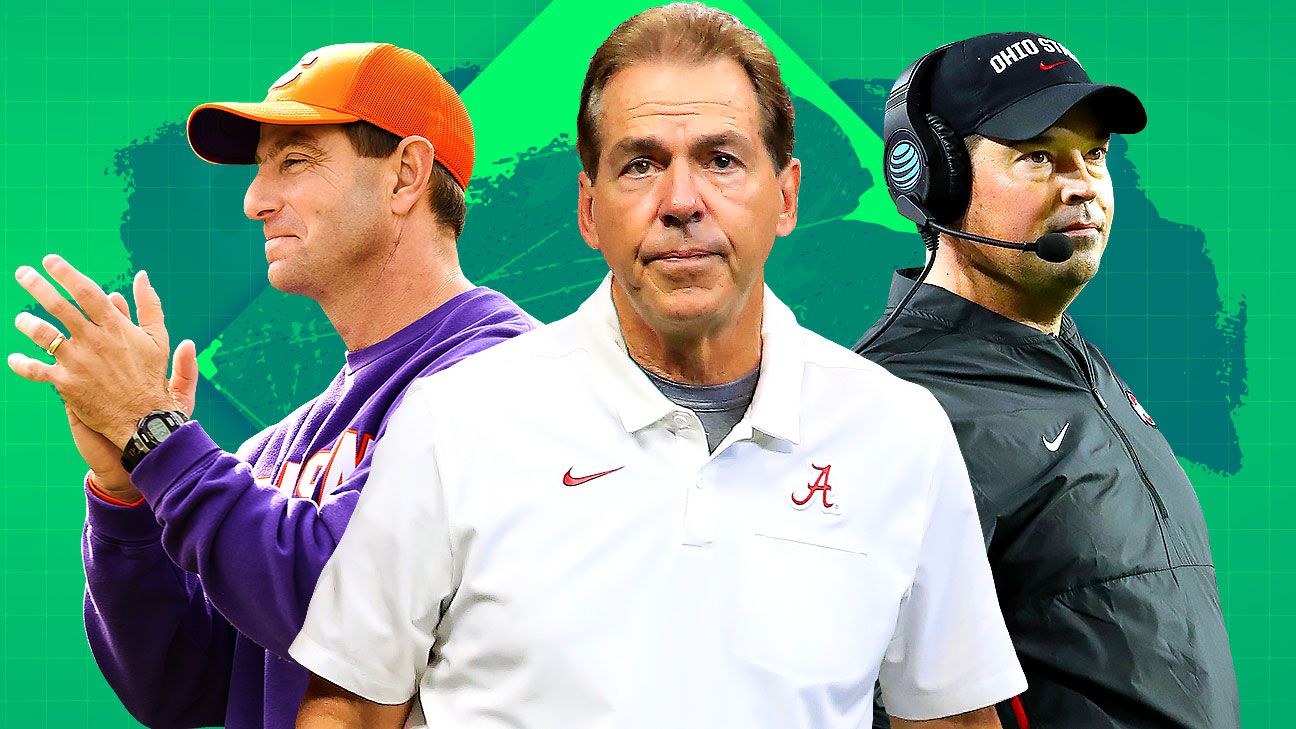The future power rankings series has reached its annual zenith with the team rankings.
You’ve already digested top-25s for quarterbacks, offenses and defenses, and likely have a rough idea of how the team list will unfold. But the team rankings don’t always weigh everything equally, and put greater emphasis on other factors such as coaching stability, overall program trajectory and recruiting operation.
FPR is ultimately a personnel-based projection, and some of the players cited in previous lists will be recognized here. But the team rankings take a wider-angle view of the nation’s top-25 teams over the next three seasons: 2021, 2022 and 2023. Some teams just consistently outperform their personnel, which deserves recognition here.
Here’s a look at last year’s team list, which slotted eventual national champion Alabama at No. 3, defending national champion LSU at No. 5, and Texas and Auburn — two teams that would make coaching changes — at No. 11 and 12, respectively. All four eventual College Football Playoff participants placed in the top nine, but three teams that finished in the AP top 10 — Cincinnati, Iowa State and Northwestern — were not ranked.
Now let’s look ahead to the next set of team rankings, which account for the most recent roster updates around the country.
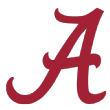
Future QB ranking: 4
Future offense ranking: 2
Future defense ranking: 3
Scouting the Crimson Tide: After a perfect season, a national title and the most decorated recruiting class ever, Alabama tops these rankings. The Tide have made the necessary pivot on offense and have won titles with different quarterbacks and coordinators. Bryce Young could very well be the next elite-level signal-caller in Tuscaloosa, and will work with a proven playcaller in Bill O’Brien beginning this fall. The constant is coach Nick Saban, who turns 70 on Halloween but shows no desire to do anything but win championships. A stable of backs featuring several top recruits should help offset Najee Harris’ departure, and while Alabama will experience some type of drop-off at receiver, John Metchie III and others should spark what has become a signature position group. Landing Doug Marrone as offensive line coach might be the ultimate Saban flex hire. Marrone inherits a group featuring star sophomore tackle Evan Neal and plenty of talented young players.
The defense ranking came out before Alabama added standout linebacker transfer Henry To’o To’o, who only has sophomore eligibility. He joins a front seven already featuring Will Anderson, Christian Harris and DJ Dale. Although the Tide are looking for more true difference-makers along their line, they boast more than enough talent to complement what should be a top-3 offense every season through 2023.

Future QB ranking: 2
Future offense ranking: 3
Future defense ranking: 1
Scouting the Tigers: Clemson is the clear choice to follow Alabama. The Tigers actually outperformed the Tide on the unit lists, but there’s a bit of concern after two blowout CFP losses and the departure of quarterback Trevor Lawrence. Still, Clemson is positioned very well with its roster and recruiting, and ACC titles and CFP appearances are the standard under coach Dabo Swinney. Unlike Saban, Swinney has been able to retain his coordinators. Will Tony Elliott (offense) and Brent Venables (defense) still be #ALLIN in 2023? Hard to imagine, but I thought they’d be long gone by now, too. Venables should have one of his best defenses in 2021, as Tyler Davis, Myles Murphy and Bryan Bresee lead a ferocious front, and veteran linebackers James Skalski and Baylon Spector fortifying the middle. The Tigers bring back plenty of starting experience in the secondary, too. Clemson’s defensive recruiting operation rivals Georgia’s as the nation’s best. The defense adds three top-100 national recruits in Jeremiah Trotter Jr., Payton Page and Cade Denhoff.
Venables’ defense will propel Clemson in 2021, but the offense could be very potent, too. D.J. Uiagalelei looked very impressive in relief of Lawrence, and will play at least two more seasons. Wide receiver Justyn Ross is back from a spinal injury to lead a typically strong receiving corps, and Clemson boasts depth at running back (Lyn-J Dixon, incoming freshman Will Shipley) despite Travis Etienne’s departure. The offensive line is worth watching, as opposing coaches aren’t blown away by Clemson’s group. But a 2021 class that includes four ESPN 300 line recruits will help for the future.
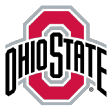
Future QB ranking: 5
Future offense ranking: 4
Future defense ranking: 5
Scouting the Buckeyes: Anything less than a national title before 2024 should leave Ohio State fans extremely disappointed. Despite the result Jan. 11 against Alabama, the Buckeyes are ready to take the next step under Ryan Day. The third-year coach has made quarterback a premier position in the program. Ohio State will miss Justin Fields but has some intriguing options beginning this fall, when C.J. Stroud seems likeliest to take over. The Buckeyes also have a commitment from quarterback Quinn Ewers, ESPN’s top-ranked player in the 2022 class. Wide receiver talent continues to flow through Columbus, as Ohio State landed top receiver recruits Emeka Egbuka and Jayden Ballard to complement veterans such as Chris Olave and Garrett Wilson. There’s no shortage of options at positions such as tight end and running back, as top-10 recruit TreVeyon Henderson enters the mix. Offensive line is another reliable group, especially with Thayer Munford back for another year.
The concern with Ohio State is a defense that recorded historic lows in two of the past three seasons, despite a very strong talent base. Ohio State needs to recapture its 2019 form and stay there. Adding the nation’s No. 1 overall recruit in end Jack Sawyer will help, and the Buckeyes boast veterans up front and in the secondary, such as tackle Haskell Garrett, end Tyreke Smith and cornerback Sevyn Banks. But Day needs more star power and consistency from the defense beginning this fall, or to consider changes. The stakes are too high for Ohio State’s defense to be average or worse.

Future QB ranking: 1
Future offense ranking: 1
Future defense ranking: 19
Scouting the Sooners: Even though Oklahoma’s streak of CFP appearances ended in 2020, the program moved closer to winning a national title. How? The Sooners defense began taking significant steps. The championship formula in the CFP era mandates top-level quarterback play and offensive production, but also a defense that ranks in the top-15 or top-20 in most major categories. Oklahoma’s defense is getting closer, and boasts plenty of potential playmakers in the front seven, such as linebackers Nik Bonitto and Brian Asamoah, and linemen Perrion Winfrey, Isaiah Thomas and Jalen Redmond. The Sooners’ improved recruiting and transfer portal additions also bolster the outlook on defense. Tennessee transfer Key Lawrence could immediately help a secondary led by an experienced safety tandem in Pat Fields and Delarrin Turner-Yell.
OU’s offense and quarterback play will project extremely well as long as coach Lincoln Riley is in town. Second-year starting quarterback Spencer Rattler enters 2021 as a top Heisman Trophy candidate. Rattler could play multiple years, and Caleb Williams, ESPN’s top-rated dual-threat quarterback in the 2021 class, figures to be next in line. The Sooners are deep at both wide receiver (Marvin Mims, Theo Wease, Austin Stogner) and running back (Kennedy Brooks, Tennessee transfer Eric Gray). Offensive line coach Bill Bedenbaugh always has his group in good shape. The group returns emerging sophomore tackle Anton Harrison and adds tackle Wanya Morris, a transfer from Tennessee.
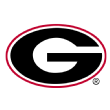
Future QB ranking: 6
Future offense ranking: 5
Future defense ranking: 2
Scouting the Bulldogs: There are no more excuses in Athens. Georgia has the roster, both now and in the immediate future, to return to the CFP. If the Bulldogs’ four-decade national title drought doesn’t end in the next three years, their fans should be massively disappointed. They finally made a necessary shift on offense behind play-caller Todd Monken and quarterback J.T. Daniels, who both return in 2021. Although George Pickens‘ ACL injury is a significant blow, Georgia has enough at both wide receiver (Kearis Jackson, Jermaine Burton) and especially tight end (Darnell Washington, LSU transfer Arik Gilbert, John FitzPatrick, Brock Bowers) to provide a big-play passing attack in 2021 and beyond. The Bulldogs’ traditional strengths of running back and offensive line should remain on track. Backs Zamir White and James Cook, and linemen Jamaree Salyer and Justin Shaffer, all boast tremendous experience, and the recruiting behind them remains strong.
Georgia’s operation on defense remains the envy of much of college football. The defense loses a lot from 2020, but adds transfers Tykee Smith (West Virginia) and Derion Kendrick (Clemson) in the secondary, as well as nine ESPN 300 defenders — headlined by top-25 national prospects Smael Mondon and Xavian Sorey. If former top-10 recruits Nolan Smith and Kelee Ringo blossom this fall alongside others, Georgia should answer key short-term questions and then let its recruiting success take over in 2022 and 2023.
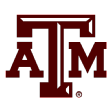
Future QB ranking: 9
Future offense ranking: 6
Future defense ranking: 4
Scouting the Aggies: Texas A&M has burned optimistic prognosticators before, and there’s an inherent risk in ranking a team so high that has never made the CFP and last won a league title in 1998 (Big 12). But there’s a lot to like about the Aggies and their trajectory, too, following the program’s first AP top-5 finish since 2012. Texas A&M’s defense is rounding into form under veteran coordinator Mike Elko, as ends DeMarvin Leal, Micheal Clemons and Tyree Johnson lead a potentially ferocious pass rush. The 2021 defense will feature a solid linebacking group and a star-studded secondary featuring safeties Leon O’Neal Jr. and Demani Richardson, and cornerback Jaylon Jones. Texas A&M continues to make gains in recruiting, signing two top-50 national recruits this year in linemen Shemar Turner and Tunmise Adeleye.
Coach Jimbo Fisher reinforced his reputation as a top quarterback developer in boosting Kellen Mond’s game in 2020. Although Mond departs, likely successor Haynes King might have an even higher ceiling relatively early in his career under Fisher. The Aggies have multiple playmaking options at running back (Isaiah Spiller and Devon Achane), tight end (Jalen Wydermyer and Baylor Cupp) and wide receiver (Ainias Smith and Chase Lane). Offensive line is a short-term concern after four starters depart, especially with a new quarterback taking over. But like Georgia, Texas A&M is set up to challenge for CFP spots and must now overcome its history and start delivering.

Future QB ranking: 21
Future offense ranking: 13
Future defense ranking: 6
Scouting the Ducks: Oregon is positioned to take the next step after consecutive Pac-12 championships and top-8 recruiting classes in two of the past three years. Coach Mario Cristobal is assembling a roster that should continue to dominate the Pac-12, but can the Ducks return to the CFP and make some noise? The biggest key, not surprisingly, is getting top-level quarterback play. Despite Tyler Shough‘s transfer to Texas Tech, Oregon has a short-term option in Anthony Brown, a multiyear starter at Boston College earlier in his career. The Ducks also have younger options in freshman Ty Thompson, ESPN’s No. 67 player in the 2021 class, and second-year signal caller Jay Butterfield. Oregon looks strong at running back and wide receiver, featuring experience (CJ Verdell, Travis Dye, Johnny Johnson III, Jaylon Redd) and great promise (Mycah Pittman, Sean Dollars, Seven McGee, Byron Cardwell, Devon Williams). Offensive line is Cristobal’s specialty and should continue to stand out behind center Alex Forsyth in 2021, and through strong recruiting for the years that follow.
Offense propelled Oregon’s most recent run of sustained elite play, but the Ducks defense is generating more buzz these days. Third-year end Kayvon Thibodeaux, a projected top NFL draft pick in 2022, will headline the unit this coming fall alongside inside linebackers Noah Sewell and Isaac Slade-Matautia, and a secondary filled with talented sophomores such as Mykael Wright and Verone McKinley III. Oregon’s defensive recruiting has really popped recently — the team has signed seven defenders in the past three classes ranked among the nation’s top 53 prospects.
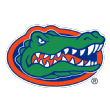
Future QB ranking: 8
Future offense ranking: 8
Future defense ranking: 12
Scouting the Gators: Despite finishing last season on a three-game slide, Florida showed it could keep up offensively with anyone, including Alabama. Coach Dan Mullen’s work with Kyle Trask reaffirmed why he belongs among college football’s best quarterback developers. But Florida hasn’t put together a complete product yet, and must continue to demand excellence in recruiting, given the teams it competes against in the SEC. Quarterback Emory Jones finally gets his opportunity, but will lead a unit losing two top-20 NFL draft picks (tight end Kyle Pitts, wide receiver Kadarius Toney). Florida has experience at running back with Dameon Pierce, Clemson transfer Demarkcus Bowman and others, but needs playmakers to emerge in the passing game, and a transitioning line to hold up in front of Jones. Wideout Jacob Copeland (18.9 ypr in 2020) could be a huge piece to the puzzle in 2021, and Florida signed two ESPN 300 tight ends in Gage Wilcox and Nick Elksnis.
Defensive coordinator Todd Grantham needs better and immediate results from his unit after a poor performance in 2020. The line could be very good this fall, as transfers Antonio Shelton (Penn State) and Daquan Newkirk (Auburn) join Zachary Carter and other holdovers. Productive junior Ventrell Miller leads the linebackers again, and while Florida needs more from its secondary, cornerback Kaiir Elam projects as a star in 2021. The Gators have signed six top-100 defenders in the past two recruiting classes, including Jason Marshall, ESPN’s top-rated cornerback in 2021.
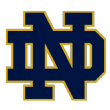
Future QB ranking: 16
Future offense ranking: 14
Future defense ranking: 9
Scouting the Irish: I went back and forth a lot between Notre Dame and LSU for No. 9. LSU typically has more high-end talent and puts recruiting at the very top of its priorities list. But Notre Dame has greater stability and overall coaching clout with Brian Kelly, who has won 10 or more games in each of the past four seasons and reached the CFP in 2018 and 2020. The Irish have five AP top-11 finishes in the past six years. But the biggest stages haven’t brought out the best in them. Notre Dame still lacks the volume of elite offensive playmakers to win it all. Kelly always is up front about what matters most at Notre Dame, but his program needs a nudge in recruiting. New defensive coordinator Marcus Freeman is the type of coach to provide one. The reality is Notre Dame should take a step backward in 2021, as the team loses several mainstays — quarterback Ian Book, linebacker Jeremiah Owusu-Koramoah, four All-ACC offensive linemen — and plays a tougher schedule (sorry, ACC). The key for 2022 and 2023 is maintaining the trajectory on defense under Freeman and getting significant upgrades at wide receiver.
The Irish have their quarterback of the future in Tyler Buchner, an ESPN top-50 national recruit who practiced this spring. Running back projects well with Kyren Williams and Chris Tyree, and Notre Dame is the epicenter for tight end recruiting and development — Michael Mayer already is a star and others are set to follow him. A short-term dropoff at offensive line is likely, but Notre Dame continues to attract top prospects such as Rocco Spindler (No. 66 overall recruit in 2021) and Blake Fisher (No. 104 overall). Notre Dame’s defense has solid players at all three levels and a star in safety Kyle Hamilton. A short-term key will be supporting veteran tackles Kurt Hinish and Myron Tagovailoa-Amosa with a dynamic pass rush. But recruiting looks good on defense — three ESPN 300 defenders already committed — under Freeman.

Future QB ranking: 15
Future offense ranking: 11
Future defense ranking: 8
Scouting the Tigers: LSU has a higher ceiling (see: 2019) but also a lower floor (see: 2020) than several teams in the top 10. The program needs less drama and more reliability at a tenuous time. Top players are never the problem in Baton Rouge, as LSU has signed three consecutive recruiting classes rated in ESPN’s top 7. Coach Ed Orgeron and a revamped staff must now capitalize on who they have and eliminate some of the volatility that plagued the 2020 team. LSU undoubtedly has the talent on defense, despite several historically bad performances in 2020. There’s great depth up front, both in 2021 and beyond, and possibly one of the nation’s top cornerback tandems in Derek Stingley Jr. and Eli Ricks. If the Tigers can sort out the linebacker group — transfers Mike Jones Jr. (Clemson) and Navonteque Strong (Mississippi Gulf Coast) should help — the unit should take a big step under new coordinator Daronte Jones. LSU signed five defenders who ranked among ESPN’s top 100 recruits for 2021, and already has top 2022 commits such as safety Jacoby Mathews.
The Tigers aim to recapture the Joe Burrow-Joe Brady magic with new coordinators Jake Peetz and DJ Mangas. They inherit a quarterback room featuring two players with starting experience in Myles Brennan and Max Johnson, who impressed as a true freshman in 2020. LSU’s running back room is loaded through 2023, so someone will emerge as a lead runner. There are some holes to fill at receiver/tight end but Kayshon Boutte (team-high 735 receiving yards last fall) will help lead the group through at least 2022. Offensive line once again should be a strength this fall as all five starters return. LSU also added a top-50 recruit in Garrett Dellinger and has another (Will Campbell) committed for 2022.
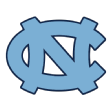
Future QB ranking: 7
Future offense ranking: 10
Future defense ranking: Not ranked
Scouting the Tar Heels: Mack Brown’s second act in Chapel Hill is going extremely well. The 69-year-old coach last fall helped North Carolina to its first-ever Orange Bowl appearance. UNC has a superstar in quarterback Sam Howell and a dynamic offense under coordinator Phil Longo’s direction. And while the Tar Heels defense didn’t crack the top-25, it could soon after adding eight ESPN 300 recruits in a class that ranked No. 7 nationally. Defensive end Keeshawn Silver, ESPN’s No. 8 overall prospect for 2021, should make an immediate impact, and UNC bolstered its outlook at linebacker with top-100 recruit Raneiria Dillworth. Coordinator Jay Bateman’s defense also returns every player who started in the Orange Bowl against Texas A&M, including proven players such as linebackers Jeremiah Gemmel and Tomon Fox, linemen Tomari Fox and Raymond Vohasek, and cornerbacks Kyler McMichael and Tony Grimes.
If the defense steadily improves, UNC should be able to execute the formula of elite offense and good-enough D to contend for championships. Howell will be gone in 2022, as he’s projected as a top-10 NFL draft pick, but Longo has options in Jacolby Criswell and Drake Maye, ESPN’s No. 47 overall recruit in 2021. The offensive line projects very well with all five starters back for this fall, including three All-ACC selections. North Carolina loses a lot at both running back and wide receiver but brings back wideouts Beau Corrales and Khafre Brown, tight end Garrett Walston and others. The Heels also have a commitment from top 2022 receiver Tychaun Chapman.
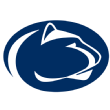
Future QB ranking: 18
Future offense ranking: 15
Future defense ranking: 17
Scouting the Nittany Lions: Penn State is in an interesting spot after a bad season (4-5) and a bad recruiting class (No. 24, lowest-rated under coach James Franklin). But there are reasons to believe last year was a blip, and that the Lions will be fine for 2021 and beyond. PSU returns key players on both sides of the ball, added some potential impact transfers and has a 2022 class (seven ESPN 300 commits) rated No. 5 in Craig Haubert’s latest rundown. Offense is the immediate focus as quarterback Sean Clifford, a two-year starter, returns with another new play-caller in Mike Yurcich, who coached Justin Fields in 2019 at Ohio State. Although depth behind Clifford is a short-term concern, Penn State has a commitment from Drew Allar, ESPN’s No. 37 overall player in the 2022 class. Running back Noah Cain returns from injury to join Baylor transfer John Lovett, and Jahan Dotson will lead the receiving corps for another year with Parker Washington, who only has freshman eligibility. Left tackle Rasheed Walker, an NFL prospect, leads a line that should be strong on the perimeter but must continue to add pieces through recruiting and perhaps the transfer portal.
The Nittany Lions need their offense to step up, as the defense loses two first-round NFL draft picks (Micah Parsons, Odafe Oweh) and veteran end Shaka Toney. There’s more continuity in the back end with defensive backs Tariq Castro-Fields and Jaquan Brisker, linebackers Ellis Brooks and Jesse Luketa, and others. PSU will lean on tackle PJ Mustipher, transfers Arnold Ebiketie (Temple) and Derrick Tangelo (Duke), end Adisa Isaac and others to shore up the front. The development of young players such as linebacker Curtis Jacobs and cornerback Kalen King will shape the long-term forecast.

Future QB ranking: Not ranked
Future offense ranking: 20
Future defense ranking: 7
Scouting the Bearcats: After a near-perfect 2020 season, Cincinnati has become the main attraction in the Group of 5. Coach Luke Fickell’s team will enter the fall as the overwhelming favorite to return to a New Year’s Six bowl and, because of games against both Notre Dame and Indiana, possibly contend for a CFP spot. If this were a one-year projection, the Bearcats would be comfortably in the top 10. But there are questions beyond 2021, including whether Fickell moves up to a bigger job. Quarterback Desmond Ridder (36 career starts) will lead the offense for a final season, and Cincinnati has high hopes in his successor Evan Prater, an ESPN 300 recruit in 2020. Jerome Ford, an Alabama transfer, leads a strong group of backs in an offense that prioritizes the run. Veteran receivers Alec Pierce and Michael Young Jr. return, but Cincinnati will need downfield threats to emerge in 2022 and beyond. Productive tight end Josh Whyle could play two more years, and Cincinnati’s line should hold up well if answers are found on the edges.
The defense is the story at UC, though, and will remain so as long as Fickell prowls the sideline. The 2021 defense could be Fickell’s best, as standouts such as cornerbacks Coby Bryant, Ahmad Gardner and Arquon Bush, end Myjai Sanders, and linebackers Darrian Beavers and Joel Dublanko all return. There will be significant turnover in 2022, especially along the line, and Cincinnati will need contributions from players such as end Sterling Miles, linebacker Brody Ingle and tackle Jowon Briggs, a Virginia transfer. Cincinnati should be a destination for transfer defenders from Power 5 programs.
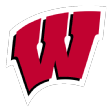
Future QB ranking: Not ranked
Future offense ranking: 24
Future defense ranking: 9
Scouting the Badgers: History is on Wisconsin’s side despite a strange and disappointing 2020 season. The Badgers, who went 4-3 last fall, haven’t gone two years without reaching the Big Ten championship game since its inception, and have finished in the AP top 25 in 13 of the past 17 seasons. Their identity is clear, and defensive coordinator Jim Leonhard’s decision to pass up the Green Bay Packers and remain in Madison is huge for the entire program. As long as Leonhard is in place, Wisconsin will thrive on defense, a group that returns an excellent group of non-senior linebackers, including Jack Sanborn, Leo Chenal and Nick Herbig. Leonhard has upgraded a secondary that projects well both for 2021 — Faion Hicks, Caesar Williams, Scott Nelson — and beyond, as Wisconsin added two ESPN 300 safeties in the 2021 class. The key will be finding more difference-makers on the line to build around nose guard Keeanu Benton, who has impressed Big Ten coaches and will play at least through 2022. Wisconsin also added ESPN 300 T.J. Bollers in the 2021 class.
To remain atop the increasingly competitive Big Ten West, Wisconsin needs consistent production from an offense that bottomed out for several weeks last season. Hopes are still high for quarterback Graham Mertz, the former top 25 national recruit who enters his second season as the starter. Mertz and standout tight end Jake Ferguson both could play multiple seasons for the Badgers, who will be better at wide receiver if veterans Danny Davis III and Kendric Pryor stay on the field. Wisconsin really missed Jonathan Taylor last fall and didn’t have a true featured tailback. Perhaps Jalen Berger takes on the role in his second season, or maybe Clemson transfer Chez Mellusi. The Badgers rely on top offensive line play and project well with several experienced options (Logan Bruss, Josh Seltzner, Tyler Beach) and recent recruiting success (five ESPN 300 tackles in the past two classes).
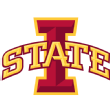
Future QB ranking: 10
Future offense ranking: 16
Future defense ranking: 18
Scouting the Cyclones: Like Cincinnati, Iowa State would rank higher in a one-year projection. The Cyclones enter the fall as a bona fide CFP contender, an unthinkable statement not long ago. There are significant questions in 2022 and 2023, though, including whether coveted coach Matt Campbell remains in Ames, but the program is on a historic trajectory after a No. 9 finish and a Fiesta Bowl title last fall. ISU has all the pieces to contend for the Big 12 title in 2021. Quarterback Brock Purdy and running back Breece Hall form one of the nation’s top backfields, and Purdy will look for wide receiver Xavier Hutchinson, Mackey Award candidate Charlie Kolar and tight end Chase Allen, among others. The defense returns Big 12 Defensive Player of the Year Mike Rose, three-time first-team All-Big 12 safety Greg Eisworth II and other veteran standouts, such as linebackers Jake Hummel and O’Rien Vance, and cornerbacks Anthony Johnson Jr. and Datrone Young. ISU’s offensive line looks strong with left tackle Sean Foster and six others with starting experience.
The question marks all have to do with 2022 and 2023, although the Cyclones could return Hall and others such as offensive tackle Jake Remsburg, safety Isheem Young, linebacker Gerry Vaughn and end Will McDonald IV. Iowa State has recruited two ESPN 300 quarterbacks, Hunter Dekkers and Aidan Bouman, to take over when Purdy moves on. The team’s overall recruiting is unremarkable — zero four-star prospects in the 2021 class. But player development is a hallmark for Campbell, who will continue to transform the program if he stays in Ames.

Future QB ranking: 3
Future offense ranking: 7
Future defense ranking: 25
Scouting the Trojans: Interestingly enough, USC had the exact same ranking for both quarterback and offense a year ago. The Trojans move up a spot overall because of improvements on defense and in overall recruiting. While quarterback Kedon Slovis likely enters his final season and several key offensive performers from 2020 depart, the Trojans are set up well to reload. If Slovis exits after 2021 — not a guarantee — USC has two talented options in Jaxson Dart and Miller Moss, both rated among ESPN’s top 40 2021 recruits. USC’s offense also boasts a nice mix of seniors (running back Vavae Malepeai, tight end Erik Krommenhoek), underclassmen (wide receivers Drake London and Bru McCoy) and transfers (running back Keaontay Ingram, wide receivers K.D. Nixon and Tahj Washington). Tackle Alijah Vera-Tucker, a first-round NFL draft pick, will be missed, but USC brings back almost everyone else and could have a very similar line in 2022. If coordinator Graham Harrell can mix in a bit more run with the Air Raid system, USC will be tough to stop this fall.
The defense showed improvement in 2020 under new coordinator Todd Orlando, and has a chance to be better in the coming seasons. Non-seniors such as linebacker Drake Jackson, cornerback Chris Steele and safety Isaiah Pola-Mao are all proven players, but the real excitement comes in the younger classes. USC adds defensive end Korey Foreman, ESPN’s No. 3 overall recruit for 2021, who could play alongside Tuli Tuipulotu for the next few years. Foreman is among five incoming defenders ranked in ESPN’s top 140 prospects. USC also has a 2022 commitment from cornerback Domani Jackson, ESPN’s No. 5 overall prospect. While coach Clay Helton must deliver championships to keep his job, USC has enough talent to win consistently through the 2023 season.

Future QB ranking: 23
Future offense ranking: Not ranked
Future defense ranking: 15
Scouting the Huskies: Washington only played four games in 2020, all against unranked opponents, so it’s difficult to extract too much about the program’s trajectory under coach Jimmy Lake. The Huskies defense always will be good to great under Lake, who reclaims play-calling duties, although a torn Achilles’ for linebacker and All-America candidate Zion Tupuola-Fetui really stings. Washington boasts enough depth in the front seven with several exciting non-seniors such as linebackers Edefuan Ulofoshio and Jackson Sirmon, and junior lineman Tuli Letuligasenoa. The secondary is Lake’s signature group and brings back solid pieces in cornerback Trent McDuffie and safeties Asa Turner and Alex Cook. Safety depth looks like a real strength through 2023. Although Washington’s recent defensive recruiting doesn’t really jump out, Lake always has been gifted at identifying talent. The Huskies also are an appealing transfer destination.
Washington’s offense is the unit that will determine which direction the team goes in these rankings. Dylan Morris did a good job in 2020 and once again will have star tight end Cade Otton at his disposal. The Huskies are extremely experienced at running back with sixth-year players Sean McGrew and Kamari Pleasant, and Cameron Davis could be a good post-2021 option. The real intrigue is how quickly Sam Huard develops at quarterback. Huard, ESPN’s No. 15 overall recruit for 2021, is the type of player who could get Washington back in the CFP conversation. The team needs a significant boost at wide receiver, and could seek it from incoming freshman Jabez Tinae, an ESPN 300 selection, Michigan transfer Giles Jackson, or 2022 commit and ESPN 300 prospect Germie Bernard.

Future QB ranking: 9
Future offense ranking: 9
Future defense ranking: Not ranked
Scouting the Longhorns: Texas is one of the more interesting teams to project, as Steve Sarkisian begins his second act as a head coach. Sarkisian is in Austin to boost quarterback play and overall offensive production, which should help Texas close the gap with archrival Oklahoma and eventually make its first CFP appearance. The new coach inherits enough talent on offense, from emerging star running back Bijan Robinson to quarterbacks Casey Thompson and Hudson Card. Thompson looked great in Texas’ Alamo Bowl win over Colorado, while Card is ESPN’s No. 40 overall recruit in the 2020 class. Sarkisian also landed a commitment from Maalik Murphy, an ESPN 300 quarterback for the 2022 class. Robinson and junior Roschon Johnson will propel the run game, and Texas also returns non-senior wide receivers in Joshua Moore, Jake Smith and Jordan Whittington. Also arriving is Ja’Tavion Sanders, ESPN’s No. 13 overall 2021 recruit, who will begin his career on offense. Kyle Flood came with Sarkisian from Alabama and will work with a line featuring some exciting younger players (Jake Majors, Andrej Karic), although a recruiting boost there is likely needed for 2022 and 2023.
The main personnel concerns with Texas are on defense, especially after the NFL departure of top disrupter Joseph Ossai. Sarkisian made smart coaching hires with primary coordinator Pete Kwiatkowski and co-coordinator Jeff Choate. They need to find more playmakers in the front seven, which includes some mainstays such as senior linebacker DeMarvion Overshown and junior tackle Keondre Coburn. Texas also has some experience in the back end with D’Shawn Jamison, Josh Thompson and B.J. Foster, but there’s a need for new faces with the unit. The Longhorns have added several transfers on defense, including linebackers Devin Richardson (New Mexico State) and Ben Davis (Alabama), and end Ovie Oghoufo (Notre Dame). They also signed eight ESPN 300 defenders this year, led by cornerback Ishmael Ibraheem.
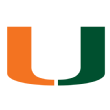
Future QB ranking: 13
Future offense ranking: 18
Future defense ranking: 22
Scouting the Hurricanes: Several teams on this list have championship-level talent, but for one reason or another, can’t fully be trusted. Georgia, Texas A&M and LSU all fall into this category. So does Miami. The Hurricanes continue to pile up playmakers, either through recruiting or the transfer portal, and signed ESPN’s No. 11 recruiting class in 2021. Despite losing two first-round draft picks (Jaelan Phillips, Gregory Rousseau) and other key contributors, Miami has enough on both sides of the ball to contend in the ACC Coastal. But the Canes have to eliminate performances like the ones they had last fall against Clemson and North Carolina or throughout the past decade. Head coach Manny Diaz will reclaim play-calling duties for the defense, which lost three linemen to the NFL draft but returns All-ACC safety Bubba Bolden, outside linebacker Gilbert Frierson, safety Gurvan Hall Jr., lineman Nesta Jade Silvera and others. The real excitement could come in 2022 and beyond. After signing two ESPN top-65 recruits for 2020 in safety Avantae Williams and end Chantz Williams, Miami just added two of the nation’s top defensive recruits in lineman Leonard Taylor and linebacker James Williams.
Coordinator Rhett Lashlee revived the offense in 2020 and has the depth chart set up well through 2023. Quarterback D’Eriq King is fighting his way back from another knee injury, and aims to lead the unit this fall. But Miami has insurance with second-year QB Tyler Van Dyke and incoming freshman Jake Garcia, the onetime USC commit who impressed this spring. Few teams are set up better at running back than Miami, which has Cam’Ron Harris and Donald Chaney Jr. in the fold, and several top recruits joining the mix. Mike Harley and Oklahoma transfer Charleston Rambo form an exciting receiver tandem in 2021, and Miami has recruited well at the position for the coming years. Miami’s line returns a lot of experience and showed clear improvement last fall, but must take another step to compete with the nation’s best.
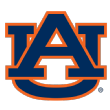
Future QB ranking: Not ranked
Future offense ranking: Not ranked
Future defense ranking: 10
Scouting the Tigers: The Bryan Harsin era on the Plains begins with a very clear directive: get more out of Bo Nix (or another quarterback) and the offense, while maintaining the performance level on defense. If so, Auburn should push Alabama, Texas A&M and LSU in the SEC West division, and contend for its first CFP appearance. Nix, a two-year starter, has obvious gifts but must become a steadier passer and a less-reckless player overall. If not, Harsin could move on to LSU transfer TJ Finley, Dematrius Davis or, in a year, 2022 quarterback commit Holden Geriner, an ESPN 300 selection. The new coach inherits an emerging star in sophomore running back Tank Bigsby, but must identify other playmakers at wide receiver and tight end. Sophomore wideout Elijah Canion is among those to watch under Harsin and coordinator Mike Bobo. Auburn returns all five line starters and a solid center in senior Nick Brahms, but the team needs more from the veteran group, as well as recruiting/transfer upgrades for 2022 and 2023.
Former Vanderbilt coach Derek Mason takes over an Auburn defense led by talented linebacker tandem Owen Pappoe and senior Zakoby McClain, as well as standout cornerback Roger McCreary and veteran safety Smoke Monday. The back-end outlook beyond 2022 looks solid with defensive backs Nehemiah Pritchett and Ladarius Tennison, linebacker Cam Riley and others. Auburn loses quite a bit up front but brings back All-SEC freshman selection Colby Wooden, and added end Marcus Harris, a transfer from Kansas. The Tigers also have recruited well along the line with Dylan Brooks, ESPN’s No. 18 recruit for 2021, and tackle Lee Hunter.
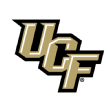
Future QB ranking: 11
Future offense ranking: 17
Future defense ranking: Not ranked
Scouting the Knights: Coach Gus Malzahn’s new team lands a spot behind his old squad, but has a genuine opportunity to move up. The key is Malzahn rediscovering the schematic formula that made him the envy of college football from 2010 to 2015. Malzahn inherits a potentially great quarterback situation with Dillon Gabriel, the FBS passing leader last fall, who has 7,223 career pass yards and 61 touchdowns. If Gabriel plays two more seasons, UCF should continue to pile up points. The Knights have gone to Arizona for quarterbacks in the past two recruiting classes (Parker Navarro, Mikey Keene), and should appeal to QBs transfers from Power 5 programs. UCF has a few holdovers at the skill positions — running back Bentavious Thompson, wide receivers Jaylon Robinson and Ryan O’Keefe — and adds a number of key transfers, including former Auburn players Nate Craig-Myers and Mark Antony-Richards, former Notre Dame wideout Jordan Johnson and former Northwestern starting running back Isaiah Bowser. Offensive line should be a strength for the next few years, as first-team All-AAC selections Matthew Lee and Cole Schneider return.
Malzahn and the offense will get most of the attention, but UCF ultimately must make strides on defense after a disappointing 2020 season. The Knights lose second-round NFL draft pick (safety Richie Grant) and a third-round pick (cornerback Aaron Robinson) from a unit that allowed nearly 500 yards per game. Transfers should help, as UCF added Auburn defensive lineman Big Kat Bryant and linebacker Bryson Armstrong, an FCS All-America selection at Kennesaw State. They join experienced linebackers Eriq Gilyard and Tatum Bethune, safety Derek Gainous, defensive end Tre’Mon Morris-Brash and others under new coordinator Travis Williams, who coached with Malzahn at Auburn.
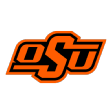
Future QB ranking:14
Future offense ranking: 12
Future defense ranking: Not ranked
Scouting the Cowboys: Although coach Mike Gundy is getting further away from a historically great stretch between 2010 to 2017 — Oklahoma State went 78-26 with seven AP top-20 finishes — his program reliably spits out winning seasons and exciting offenses. The trend should continue through 2023, as the Cowboys are set up well with their signature unit. Quarterback Spencer Sanders has had two statistically similar seasons and will lead the offense for at least one more year. There’s depth behind Sanders with Shane Illingworth, who saw the field last year, and the Cowboys have a commitment from 2022 recruit Garret Rangel, an ESPN 300 prospect. Oklahoma State has plenty of short-term running back options with seniors Dezmon Jackson and LD Brown, and sophomore Dominic Richardson, who should carry the load in 2022 and possibly beyond. There’s some turnover at wide receiver but senior Braydon Johnson will lead a traditionally strong group. Oklahoma State also adds Washington State transfer Tay Martin, ESPN 300 recruit Bryson Green and others. The line features All-Big 12 guard Josh Sills and several younger players with starting experience, such as Jake Springfield.
Oklahoma State’s ability to make a jump in these rankings hinges on its defense, which stood out in several categories last fall but loses key players such as cornerback Rodarius Williams and linebacker Amen Ogbongbemiga. The front seven could be good in 2021, although defensive end Trace Ford’s response from a knee injury will be key. Senior Brock Martin and junior Tyler Lacy are both solid options at end, while sophomore Collin Clay returns from injury to solidify the interior with senior Israel Antwine. Williams will be missed, but All-Big 12 safety Kolby Harvell-Peel is ready to lead the secondary alongside Tre Sterling, Christian Holmes and others. Leading tackler Malcolm Rodriguez and Devin Harper return at linebacker, although both are seniors and the Cowboys will need to build there for 2022.

Future QB ranking: Not ranked
Future offense ranking: Not ranked
Future defense ranking: 13
Scouting the Hawkeyes: Iowa shouldn’t be going on six seasons since its last appearance in the Big Ten championship game. The Hawkeyes are 41-19 since 2016 and continue to produce NFL draft picks on both sides of the ball. Veteran defensive coordinator Phil Parker is one of the nation’s most underrated coaches, and should produce solid to excellent units through 2023. Iowa is traditionally strong up front and excels under Parker in the secondary, where veterans Riley Moss, Jack Koerner and Matt Hankins all return, as well as non-seniors such as Kaevon Merriweather and Jermari Harris. The linebacker group projects extremely well with juniors Jack Campbell and Seth Benson, sophomore Jestin Jacobs and others. Line depth is something to watch as Iowa looks for more beyond veteran end Zach VanValkenburg and junior tackle Noah Shannon. Junior end John Waggoner could be a key piece the next two years.
The biggest factor for Iowa is getting more out of the quarterback position during the next three seasons. Spencer Petras (57.1% completions, five interceptions) needs to be sharper, or Iowa must consider sophomore Alex Padilla. Second-year signal caller Deuce Hogan, a four-star recruit in 2020, is an option down the road. Iowa will miss speedy receiver Ihmir Smith-Marsette, but brings back solid options in juniors Tyrone Tracy Jr. and Nico Ragaini, and an excellent tight end in junior Sam LaPorta (team-high 26 receptions in 2020). But like others on this list, Iowa needs more field-stretching weapons. The run game looks great with Doak Walker Award candidate Tyler Goodson, and Gavin Williams as a good long-term option. Iowa’s offensive line usually pans out, but there are short-term questions around Rimington Award frontrunner Tyler Linderbaum and guard/tackle Justin Britt. Iowa added two ESPN 300 linemen in the 2021 class.
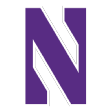
Future QB ranking: Not ranked
Future offense ranking: Not ranked
Future defense ranking: 14
Scouting the Wildcats: Only four Big Ten teams have made multiple appearances in the league’s 10-year-old championship game, and Northwestern is now one of them (2018, 2020). Coach Pat Fitzgerald again turned down NFL overtures and in January agreed to a new 10-year contract with his alma mater. Northwestern produced two first-round draft picks this year (after none since 2005), and continues to recruit better. The Wildcats’ biggest weakness is wide receiver and the lack of a downfield passing game. Sophomore Bryce Kirtz is expected to take on a bigger role this fall, while JJ Jefferson returns after opting out in 2020, and the team adds Kansas transfer Stephon Robinson Jr. Northwestern could get a boost from younger receivers such as Genson Hooper Price and incoming freshman Jordan Mosley, an ESPN 300 recruit. The team went into the transfer portal for quarterback Ryan Hilinski, the former South Carolina starter, who will compete with Clemson transfer Hunter Johnson for the top job in 2021. The run game will be a strength with sophomores Cam Porter and Evan Hull, and incoming freshman Anthony Tyus III. The offensive line also projects well as tackle Peter Skoronski will play at least two more years, and senior Sam Gerak solidifies the center spot.
Defense has propelled Northwestern since 2015, and projects well despite a coordinator transition from Mike Hankwitz to Jim O’Neil. All-America safety Brandon Joseph leads a talented secondary that includes fellow non-seniors such as Cameron Mitchell, A.J. Hampton and Coco Azema. Defensive line is another reliable group, and returns veterans Adetomiwa Adebawore, Trevor Kent and Samdup Miller, who opted out last season, as well as exciting younger players such as sophomore tackle Jordan Butler and incoming freshman Najee Story, an ESPN 300 recruit. Gone are productive linebackers Paddy Fisher and Blake Gallagher, but two-year starter Chris Bergin is back and players such as Peter McIntyre and Khalid Jones have waited for an opportunity.

Future QB ranking: Not ranked
Future offense ranking: Not ranked
Future defense ranking: 16
Scouting the Utes: As usual, determining the final spot in the rankings wasn’t easy. Several teams just missed the cut: Michigan, Boise State, BYU, Louisiana, Appalachian State and Stanford. Utah ultimately got the nod because of its consistent success (58-27 since 2014), a restocked defense and the potential for improvement on offense with Baylor quarterback transfer Charlie Brewer in the fold. The Utes defense should be ferocious this fall as 10 starters return, including All-America linebacker Devin Lloyd and defensive end Mika Tafua, a second-team all-league selection. Lloyd and Tafua are among the experienced non-seniors Utah will feature, alongside linebacker Nephi Sewell, defensive tackle Devin Kaufusi and cornerbacks JaTravis Broughton, Clark Phillips III and Malone Mataele. A line loaded with experience — Maxs Tupai, Viane Moala, Hauati Pututau — will turn over in 2022, but younger players such as Tennessee Pututau and Van Fillinger should step in nicely. The Utes also add Ethan Calvert, ESPN’s No. 55 overall recruit in 2022, as well as fellow ESPN 300 linebacker prospect Mason Tufaga. Washington transfer Brandon McKinney bolsters the secondary.
As usual, Utah’s big question marks are on offense, which continues to mine the transfer portal. Brewer and former Texas quarterback Cameron Rising are competing for the top job. The Utes also add transfer running backs TJ Pledger (Oklahoma) and Chris Curry (LSU), and wide receivers Theo Howard (Oklahoma) and Munir McClain (USC). Talented holdovers such as junior tight end Brant Kuithe and junior wide receivers Britain Covey and Solomon Enis will bolster the passing game. Versatile offensive lineman Nick Ford, a two-time All-Pac-12 selection, leads a line that returns everyone and will remain mostly intact for 2022 and possibly 2023. Guard Sataoa Laumea and tackle Simi Moala are among the building blocks there.
